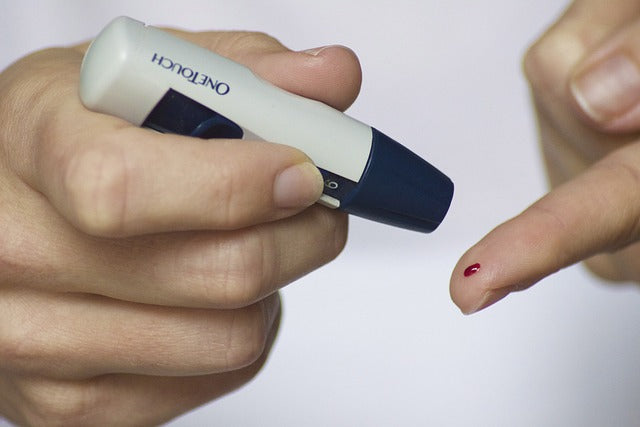What can the ketogenic diet help with?'
Our Keto Guide tells you what you can use the ketogenic diet for so that it can help you in your everyday life and prevent health problems!

Ketogenic diet &
diabetes
The ketogenic diet can help stabilize blood sugar levels and
Improve insulin resistance, which is particularly beneficial for people with type 2 diabetes
Some studies have shown that the ketogenic diet reduces HbA1c (a
long-term blood sugar level).

Ketogenic diet for the
Heart
By reducing the
Carbohydrate intake and healthy fat intake can support the ketogenic
Diet can improve the risk factors for heart disease. These include reducing
of LDL cholesterol (bad cholesterol) and the increase of HDL cholesterol
(good cholesterol).

Ketogenic diet for
epilepsy
The ketogenic diet, formerly known as
normal diet, was originally developed in the 1920s to treat
Epilepsy has been rediscovered and is still an effective therapy for people with
therapy-resistant epilepsy, especially in children. Studies have shown that
ketogenic diet reduces the frequency and severity of seizures.


The perfect companion for your complaints
Keto Classic Baking Mix








Ketogenic diet for
Cancer
The ketogenic diet is increasingly being used as
complementary therapy for cancer patients. This diet is based on a very
low-carbohydrate, high-fat diet that puts the body into a state of ketosis, using ketone bodies instead of glucose as the primary energy source.
Here are some positive effects of the ketogenic diet on cancer:
Reduced blood sugar and insulin levels:
Tumor cells need sugar to grow. By reducing carbohydrate intake, blood sugar levels are lowered and tumor growth is inhibited.

Ketogenic diet for
flatulence
The ketogenic diet can help some people to reduce bloating and
reduce digestive problems.
Carbohydrates, especially certain sugars and gluten, can cause bloating in some people. By minimally reducing carbohydrates, the ketogenic diet can reduce the amount of gas-forming
substances in the intestine.

Ketogenic diet for the
Colon
Known for its high fat and low carbohydrate content, the ketogenic diet has potential benefits for gut health:
- Change in gut microbiota: The ketogenic diet can have a positive effect on the gut microbiome. Studies show that it can increase the diversity of gut bacteria and improve the ratio of beneficial to harmful bacteria. A balanced microbiome is important for healthy digestion and a strong immune system.
- Anti-inflammatory effects: A ketogenic diet may have anti-inflammatory effects. Chronic inflammation in the gut is associated with various diseases such as irritable bowel syndrome (IBS) and inflammatory bowel disease (IBD). By reducing inflammation, the ketogenic diet may help alleviate these conditions.
- Promote gut barrier function: The ketogenic diet can support the integrity of the gut barrier. A strong gut barrier prevents pathogens and toxins from entering the bloodstream, which contributes to overall health.
-
Reducing sugar and processed foods: By eliminating sugar and highly processed foods common in a typical Western diet, the ketogenic diet can help improve gut health. Carbohydrate-heavy foods can encourage the growth of harmful bacteria and promote inflammation.

Ketogenic diet for
skin problems
The ketogenic diet, which is high in fats and low in carbohydrates, shows potential positive effects on several skin conditions. Here is one way a ketogenic diet can affect skin health.
Reducing inflammation: Many skin diseases such as acne, psoriasis and eczema
are associated with inflammatory processes. The ketogenic diet has anti-inflammatory properties as it can reduce the production of pro-inflammatory cytokines. This can help reduce skin inflammation and relieve symptoms.


Keto.wecken
Keto Classic Baking Mix
















